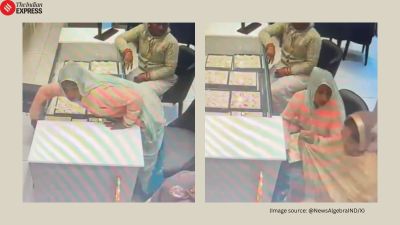Now, a code of conduct for scientists
HYDERABAD, APRIL 15: Concerned Indian scientists have framed a code of conduct not only for scientists but also scientific agencies. This ...

HYDERABAD, APRIL 15: Concerned Indian scientists have framed a code of conduct not only for scientists but also scientific agencies. This is the first time in India that this kind of charter has been put together.
Among other things, the 15-point code of conduct calls on scientists never to 8220;cook8221; results and not to claim authorship in papers unless the scientist had made 8220;substantial contribution.8221; It also advises scientists 8220;never to yield to political or social pressures or be swayed by considerations of caste, creed, regionalism.8221;
Over 450 scientists from a range of disciplines ranging from molecular biology to space sciences participated here in a National Symposium on Ethics in Administration of Science organized by the Society for Scientific Values SSV last week where this code of conduct was developed.
The code hopes to 8220;institutionalize dissent8221; in the hope that whistle blowers are well-protected. Pushp M Bhargava, SSV president, says this code already has the tacit 8220;support8221; of the Council of Scientific and Industrial Research, the Indian Council of Medical Research, the Department of Space and the Department of Science and Technology.
The code also exhorts that 8220;unethical acts such as plagiarism, dishonesty in reporting results, misuse of data must elicit severe punishment.8221;
It was unanimously accepted at the meeting that an independent Office of Research Integrity be created in the Central Vigilance Commission, New Delhi which can investigate all cases relating to scientific misconduct and fraud. S N P N Sinha, CVC secretary, told The Indian Express that as soon as they are through with the website listings of central government officers and public-sector undertakings, the CVC will direct its investigative spotlight on other professions like scientists.
Bhargava hopes that both the model codes that have been evolved would form the basis on which the Department of Science and Technology can finally formulate a Charter for Scientists to be formally adopted and implemented by the Indian government.
Participating in the meeting Raghunath A Mashelkar, a polymer scientist and CSIR director general, said 8220;he would be very happy to support the development of the charter since fraud in science has to be dealt with severely.8221;
- 01
- 02
- 03
- 04
- 05































